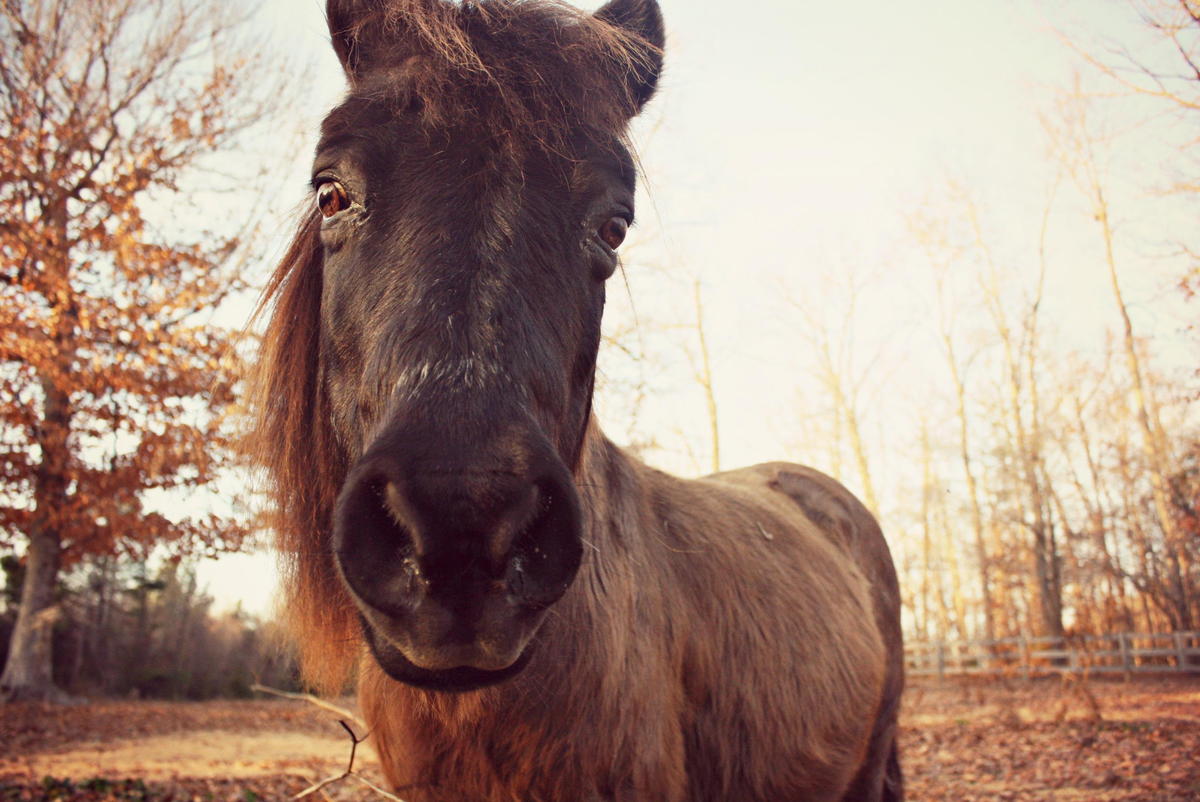Sending your Senior Horse Out Into Winter, Confidently
- posted: Oct. 20, 2022
Cold weather affects older horses more than it does their younger companions. However with knowledge and some planning, your senior can stay comfortable and healthy even when the temperature starts to drop.

Preseason Check Up
A fall veterinary examination is a good way to get ready for cold weather. Besides updating your horse’s vaccines, your veterinarian can take a look your horse’s weight and body condition to make specific recommendations for his nutritional needs. They can diagnose and address conditions such as Cushing’s disease, arthritis, heart murmurs, or heaves before the cold weather makes them more difficult to deal with. Ask your veterinarian to give your horse a thorough dental exam before winter. Dental issues can impair their ability to chew hay and grain properly which will cause them to lose weight.
Quality H2O
Make sure all older horses are drinking enough clean, warm, ice-free water during winter. Water is important for body temperature regulation and for optimal digestion. Older horses that do not chew their grain or hay thoroughly may already be more prone to digestive disturbances, and not getting enough water can lead to impaction colic. If you are uncertain about how much water your horse is consuming, make his daily grain meal into a mash by adding warm water (not hot) to the feed and mixing it up. This will give him a yummy, warm meal that increases his water intake easily. If you are worried that he still isn’t getting enough water, add some electrolytes to his mash. These will encourage him to drink more.
Feed for Warmth
Within minutes of eating a meal, the horse’s digestive processes begin to generate heat and warm the body. Just like with humans, calories that aren’t immediately used are stored as fat. This fat acts as insulation, keeping the horse warm. Older horses are usually leaner, with less fat and thinner muscles, and they don’t utilize calories as well as younger horses.
The best way for a horse to produce heat is to eat hay. Most horses consume 2 percent of their body weight in hay per day. For a 1,000-pound horse, that’s 20 pounds of hay. In winter you’ll probably need to increase that amount. Providing hay 24/7 will keep the “burning” process going. If your horse has dental issues that don’t allow him to chew hay well, offer an alternative forage such as soaked hay cubes or chopped, bagged hay products. Most senior horses need to have grain in addition to hay to stay at a healthy weight when grass is no longer available. Before increasing the amount of grain, consult with your veterinarian.
Give Them Shelter
Horses in good body condition can withstand temperatures down to -40 degrees Fahrenheit without difficulty! Their long winter hair coat traps air next to the skin, which helps insulate them against cold weather. With this in mind, however, problems can occur when strong winds ruffle the horse’s hair and disturb the insulating layer of warm air trapped beneath it. Wet weather, especially cold, driving rain or sleet, can flatten the hair coat, chilling the horse. To keep this from happening, make sure your horses have access to a simple shelter such as a three-sided, south facing shed or a heavy tree line that can serve as a windbreaker.
Carolina Equine Hospital
Are you considering upping the amount of grain your senior steed gets to compensate for the lack of grass? Do you need to know how much hay to give him when it gets nippy outside? Are you considering purchasing some electrolytes but aren’t sure how much to give your horse? Give us a call and we will do our best to answer your questions! We are available for scheduled appointments from 8-5, M-F and always have an emergency vet on call!
Location
Find us on the map
Browns Summit Location
5373 NC Hwy 150
Browns Summit, NC 27214, United States

